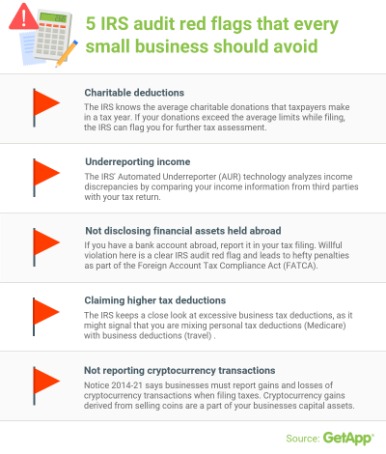
Financial analysts will track and analyze financial processes for companies, support other departments, and use financial data to create budgets and forecasts. Financial planning is a culmination of other techniques involved in achieving the internal goals of an organization. It involves the analysis of comparative financial statements and accounting ratios and the use of generated data to plan for the future. With inventory turnover analysis, managerial accountants can determine the cost of storing each unsold inventory. Optimizations can then be made to reduce the possibility or impact of excessive inventory.

Managerial accounting is not governed by GAAP, so there is unending flexibility in the types of reports and information gathered. Managerial accountants regularly calculate and manage “what-if” scenarios to help managers make decisions and plan for future business needs. Thus, managerial accounting focuses more on the future, while financial accounting focuses on reporting what has already happened.
What Types of Information Does Managerial Accounting Compute?
Managerial accounting reports provide managers with financial and contextual information regarding the business to guide the decision-making process. Managerial accounting analyzes the incremental benefit of increased production – this is called margin analysis. This flows into the breakeven analysis, which involves calculating the contribution margin on the sales mix to determine the unit volume at which the business’ gross sales equal total expenditures.

Cost accounting is used to measure and identify those costs, in addition to assigning overhead to each type of product created by the company. The majority of managerial accounting jobs will require at least a bachelor’s degree in a field such as finance, business, or accounting. If you enroll in a bachelor’s degree program, it’s helpful to take electives that can better prepare you for a career in managerial accounting. Some of the other managerial reports taken into account include competitor analysis reports, order information reports, and project reports. Apart from being internally generated, all managerial reports can also be outsourced to external expert institutions so that they remain as accurate as possible.
Pros and Cons of Managerial Accounting:
Their goal is to provide relevant, timely, and accurate financial information that
assists management in making informed decisions that improve the organization’s overall
performance and profitability. The data collected encompasses all fields of accounting that informs the management of business operations relating to the costs of products or services purchased by the company. Management accountants work for public companies, private businesses, and government agencies. These professionals may also be called cost accountants, managerial accountants, industrial accountants, private accountants, or corporate accountants. Preparing data for use within a company is one of the features that distinguishes a management accountant from other types of accounting jobs such as public accounting.
- These systems vary within the industries they are used within and allow for functionalities and reports specific to that industry.
- This is done by analyzing all of the corporation’s fixed costs along with all of its variable costs.
- The Generally Accepted Accounting Principles (GAAP) set by the Securities Exchange Commission (SEC) and standards set by the Financial Accounting Standards Board( FASB) are the primary regulatory standards in the US.
- All of these reports and calculations help management make decisions about what the company needs to change in order to improve specific production processes and departments.
Outstanding invoices are tightly followed while debtors and repayment issues are easily identified. Access and download collection of free Templates to help power your productivity and performance. Compare top brands offering free accounting software, including ZipBooks, Expesify, Harvest, and more.
Funds Flow Analysis
In business, financial accounting refers to the act of recording a company’s financial transactions, which are typically examined by investment banking analysts and shareholders of public corporations. A separate practice known as managerial accounting refers to the discipline of record-keeping with an eye towards budgeting and performance measurement, typically conducted by managers. Managerial accounting also involves reviewing the constraints within a production line or sales process. Managerial accountants help determine where bottlenecks occur and calculate the impact of these constraints on revenue, profit, and cash flow.
- A physical count inventory must be done to adjust the inventory and cost of goods sold accounts, depreciation must be calculated and entered, all prepaid asset accounts must be reviewed for adjustments, and so forth.
- The functions of managerial accounting encompass the sourcing, analyzing, and reporting of financial and non-financial information to be used for internal business decision-making and planning activities.
- The difference between the present value of cash inflows and cash outflows over a given period of time.
- The management of a business makes use of the information to evaluate and analyze a company’s performance and financial position.
Budgets are extensively used as a quantitative expression of the company’s plan of operation. Managerial accountants utilize performance reports to note deviations of actual results from budgets. The positive or negative deviations from a budget also referred to as budget-to-actual variances, are analyzed in order to make appropriate changes going forward. To get a job in managerial accounting, you’ll need to earn your bachelor’s degree, gain professional experience, and consider certification.
Financial leverage metrics
Since managerial accounting is used for internal purposes only, it is not required to conform with accounting standards, such as GAAP. Managerial accounting is what managers use to measure the success or failure of the business and if the business is meeting its goals. Basically, it’s a way for managers to tell whether their department or project is doing well and meeting expectations. Bureau of Labor Statistics (BLS) reported that accountants and auditors in general earned on average $83,980 per year (). Those employed in the management of companies and enterprises earned on average $84,820 per year.
Accenture Acquires Leading Digital Healthcare Consultancy … – Newsroom Accenture
Accenture Acquires Leading Digital Healthcare Consultancy ….
Posted: Tue, 05 Sep 2023 10:07:56 GMT [source]
On the other hand, managerial accounting does not have to fulfill any form of general standards. Managerial accounting only has to fulfill internal standards and principles set to achieve business goals. Any set standard can be easily modified to meet the changing business environment and needs. Managerial accounting is a branch of accounting that deals with the compilation of financial records for internal decision-making. It is also known as cost accounting or management accounting, and managerial accounting.
Managers need accounting reports that deal specifically with their division and their specific activities. For instance, production managers are responsible for their specific area and the results within their division. Accordingly, these production managers need information about results achieved in their division, as well as individual results what is an accounting information system of departments within the division. The company can be broken into segments based on what managers need—for example, geographic location, product line, customer demographics (e.g., gender, age, race), or any of a variety of other divisions. No external, independent auditors are needed, and it is not necessary to wait until the year-end.
The AI accounting challenge: how to turn it to your advantage – CPA Canada
The AI accounting challenge: how to turn it to your advantage.
Posted: Mon, 28 Aug 2023 21:07:03 GMT [source]
It means diligently managing relationships and resources so that the assets and reputation of the organization are protected. Unlike financial accounting, managerial accounting is only used for internal purposes. Managerial accounting is focused on internal performance like departments, projects, and processes; whereas, financial reporting is focused on the business as a whole. Managerial accounting helps managers improve business processes much the same way financial reporting helps investors make investment decisions. Management accounting helps in analysing and recording financial information which can be used by a company to increase its efficiency and productivity.
Financial Leverage Analysis
Product costing aims at identifying and distinguishing expenses into these categories for better understanding and analysis. Transactions from journals are posted to ledger accounts, which are individual accounts for
each type of asset, liability, equity, revenue, and expense. Managerial accountants identify patterns and trends in historical data, investigate data fluctuations and variances, derive actionable insights, and make projections about future trends. Use our Excel inventory turnover calculator to determine what your business’s inventory turnover rate is. Performance reports are used to note the deviation of actual results compared what was budgeted.
The financial statements typically include a balance sheet, income statement, cash flow statement, retained earnings statement, and footnotes. One example of a managerial accounting report is a budget analysis (variance report) as shown in Figure 1.5. Other reports can include cost of goods manufactured, job order cost sheets, and production reports.

